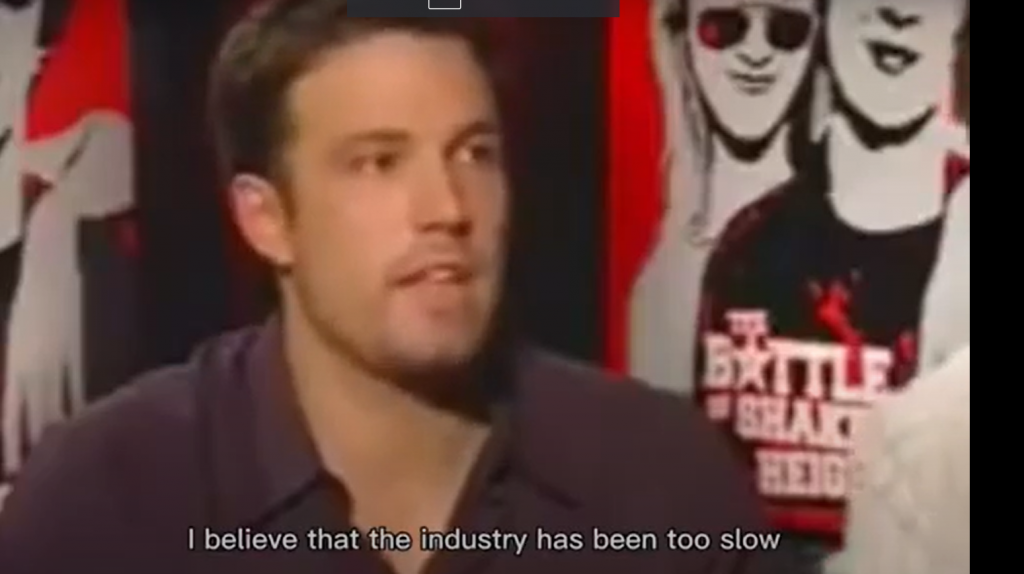Hollywood actors aren’t usually known for their business acumen, but they can be surprisingly perceptive about trends in their own industry.
Hollywood actor Ben Affleck had essentially predicted the rise of Netflix and Spotify in a 2003 interview. In 2003, Affleck was already a star, having acted in films including Good Will Hunting, Armageddon and Boiler Room. It was then he’d spoken about how the movie and music industry hadn’t adequately adopted to technological changes such as file sharing on the internet and software as a service.

“I believe that the the industry has been too slow to embrace and adopt these paradigms,” he said an interview. “If you look at historically, in terms of technologies, in terms of consumer based technologies, you have like, basically shareware that introduces the consumer to it at no cost, at which point the consumer is on the hook,” he added.
“They’ve figured out, they’ve worked out the kinks, they’ve figured out how to interact with it and how to exploit it, and then you charge a fee, and the consumer historically has been willing to pay that fee. I think, I think an annual subscription based system is the one that works,” he added.
He then gave the breakdown of the music industry. “You have the music business, a $3.4 billion a year business, which is largely about 1.7 million people in the country spending $200 a year. That same people would spend those $200 a year each year to have access to basically the entire library of existing music. And of course, you continue to re up your subscription because you pay for new music,” he’d said.
And he’d come up with something that very closely resembles Spotify of today. “Royalties would be paid more directly to the artists. You have less overhead. You pay no shipping, packaging, and there’s this mammoth amount of executives at music companies that are glomming off a lot of that money. I believe that paradigm is the most effective, productive that’s the paradigm that Adam Smith would most want. I think there are inefficiencies in the market now, and I think they’re being worked out,” he’d said.
Incredibly, he’d also seemed to predict the rise of streaming platforms like Netflix. “And I think file sharing is pushing the industry toward that balance because of its availability right now, or eventually it’s just going to be video on demand, movies on demand, because bottom line is going to eventually affect your guys’ pocketbooks if piracy continues,” he’d said.
And Affleck had also predicted the phenomenon of movies coming to streaming platforms a few weeks after their release in theatres. “There is piracy of movies, and it’ll be movies on demand, but it’ll be a tiered structure. It’ll be like, if you want to watch it first weekends, maybe it won’t be available first weekend, but then if you want to watch it, you’ll pay more, and then as it goes to another stage in its release, it’ll become less expensive,” he’d said in 2003.
Affleck had said that these changes wouldn’t take place overnight, but over the following few years. “But there’s a lot more that has to happen, technologically speaking, right now before people can watch movies or at least integrate it. In terms of the PC and Web connection, the technology is not quite there yet, but it will be within, I would say, five years,” he’d said.
Affleck wasn’t far off. In 2007, four years after the interview, Netflix began its streaming service. In 2006, Spotify had been founded, and had begun taking steps towards streaming music. Both companies are giant behemoths now, but their existence — and eventual rise — had been predicted by a Hollywood actor all the way back in 2003.